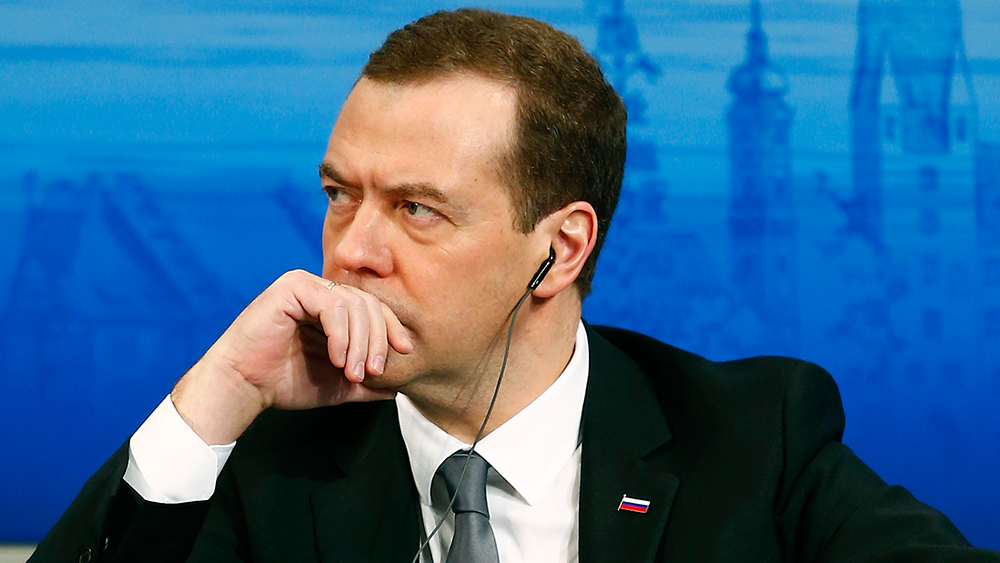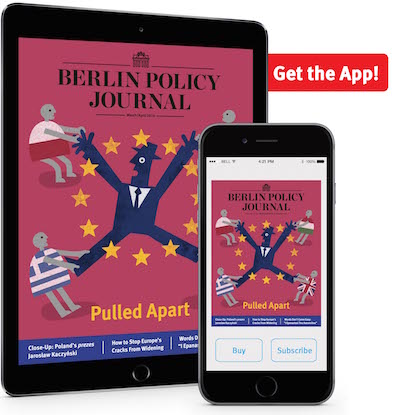The Kremlin has tried to frame recent conflicts with the West as a new Cold War. But there are important differences – and looking at today’s crises as a rerun of previous conflicts leads to dangerous assumptions.
The most repeated quote to emerge from the 2016 Munich Security Conference was Russian Prime Minister Dmitry Medvedev’s warning that Russia and the West were sliding into “a new Cold War.” Medvedev further asked, “Are we living in 2016 or 1962?”The answer is that we are living in 2016, in a world that is profoundly different from the world of the Cold War in 1962. It is no longer bipolar, but multipolar; no longer are there two competing ideologies and systems; the economic, scientific, and military potential of today’s Russia is much lower than that of the Soviet Union. Today, local and hybrid conflicts, not superpower proxy wars, drive international relations.
Russian intervention in Syria – which was meant not only to force the United States to work again with Russiaʼs President Vladimir Putin, but also to demonstrate the military prowess of Russia – implies a false impression of Russia’s influence: Moscow and Washington are both important players, but by no means are they the only ones in the Middle East. Both have only limited influence on the outcome of the Syrian disaster, and both are constrained by the situation on the ground.
Both in Russia and the West some might be tempted to feel nostalgic for the stability of the Cold War era. But this nostalgia is much more a product of today’s uncertainty than of the reality of the East-West conflict. Why then did Prime Minister Medvedev refer to a “new Cold War”, and to what degree are his intentions in line with Western interpretations?
Russia’s leaders are struggling to return their country to its former great power status. They want to be recognized by the West, particularly by the US, as one of the important poles in a multipolar world, one that must be consulted as part of any plan to solve pressing international crises.
To think that Russia’s leaders are aiming for a restoration of the Soviet Union is a misconception – and not even realistic by Putin’s standards. Moscow rather attempts to use the prestige of the former Soviet Union to ensure recognition of modern Russia’s sphere of influence, and to be accepted as a superpower equal. While in Western media the Medvedev speech was primarily interpreted as a threat from Moscow, Russian media read it – and Medvedev’s presence in Munich – as possible steps towards de-escalation and negotiation with the West.
The reference to a new Cold War is a symbol and an instrument at the same time. It implies that Russia is again on the same level as the US – just as the “red empire” was. At the same time it serves as a warning that a military confrontation with Russia could lead to disaster, as it nearly did in 1962 when Armageddon was narrowly averted during the Cuba crisis.
In his speech, Medvedev alluded to nuclear war in a purely theoretical sense. But it is crucial to keep in mind that Russia is a nuclear power and that a nuclear war remains a possibility. Russia’s nuclear arsenal and its seat on the UN Security Council are important leftovers from the Soviet Union that the West cannot ignore. Even under the current economic crisis, the Russian government prioritizes investment in the modernization of its nuclear weapons.
The discussion about the possibility of a new Cold War with Russia is not only misleading, but also dangerous. It creates the impression – both to Western “realists” and Russian leaders – that Moscow and the West could cooperate in a transactional way now as they did back then. That implies that a deal with Moscow is possible.
The Putin regime, however, is hardly comparable to Soviet leadership. It is much weaker in terms of economic performance and self-confidence. It is a crony regime, lacking any long-term strategy except staying in power. The decision to stop economic reform, in combination with the high costs of Russia’s attempt to perform as a global power will further weaken Russia. The weaker Russia becomes, the more aggressively its leadership will act to distract from its failures. There is no deal possible with a regime that is not willing, and sometimes not able, to fulfill its agreements. For Putin there are no rules except the power of the strongest.
No Rules, No Red Lines
The main challenge of today’s world is that there are no rules and no red lines in international relations as there were before 1991. Russia is the primary force undermining the existing European order. That behavior might not be restricted to Russia only – after all, Washington reshuffled the landscape of the Middle East, all while ignoring international law. But at the moment Russia is the main threat to European security.
There is no balance of power possible in today’s international order. The world of globalization is much more interconnected than the bipolar world ever was; unlike the Soviet Union, Russia is a part of the global economy, which has a fundamental impact on developments within the country. At the same time, there are no limits to Russia’s interference in Western society. After all, Russian leadership has learned to use Western vulnerabilities to undermine the credibility of Western media, politics, and governance. Interdependence is a weapon wielded by both the West (in the form of sanctions) and Russia (in undermining democratic systems), and at the same time a threat to both Western societies and the survival of the Russian regime.
To accept the paradigm of the Cold War would mean giving Russia a role in international politics that it cannot fill and it would mean that it is possible to negotiate with the current Russian leadership. Again, this is an illusion and one that will not last long. Trust is the most important currency in international relations. Russia’s leadership has lost both trust and credibility. And here we see yet another difference: Soviet leadership also wanted recognition as a legitimate and equal power. But it understood the importance of rules and red lines.
What Germany and the EU have to do is to strengthen our own resilience in terms of domestic policy and military capabilities. We need to make dangerous provocations in the EU neighborhood more expensive for Russia. At the same time, we need to rebuild trust between Russia and the West – to achieve that, we need a partner with similar interests.
At the moment, the first priority should be improving communication channels and crisis-response mechanisms with Russia. All existing institutions where Russia plays a role should be upgraded and developed, and their rules rebuilt and reinforced. Above and beyond we need arms control, dialog platforms, and institutions capable of enforcing rules.
At the same time, our security and the security of our neighbors need to be a policy priority. NATO might become even more important to Europe while the EU simultaneously needs to grow its own capabilities independent of the US. Institution-building in the common neighborhood needs to include security institutions. The states in question need to improve their ability to protect their own security and borders.
This is not a new Cold War. We may be facing a situation that is even more dangerous.
Read more in the Berlin Policy Journal App – March/April 2016 issue.








